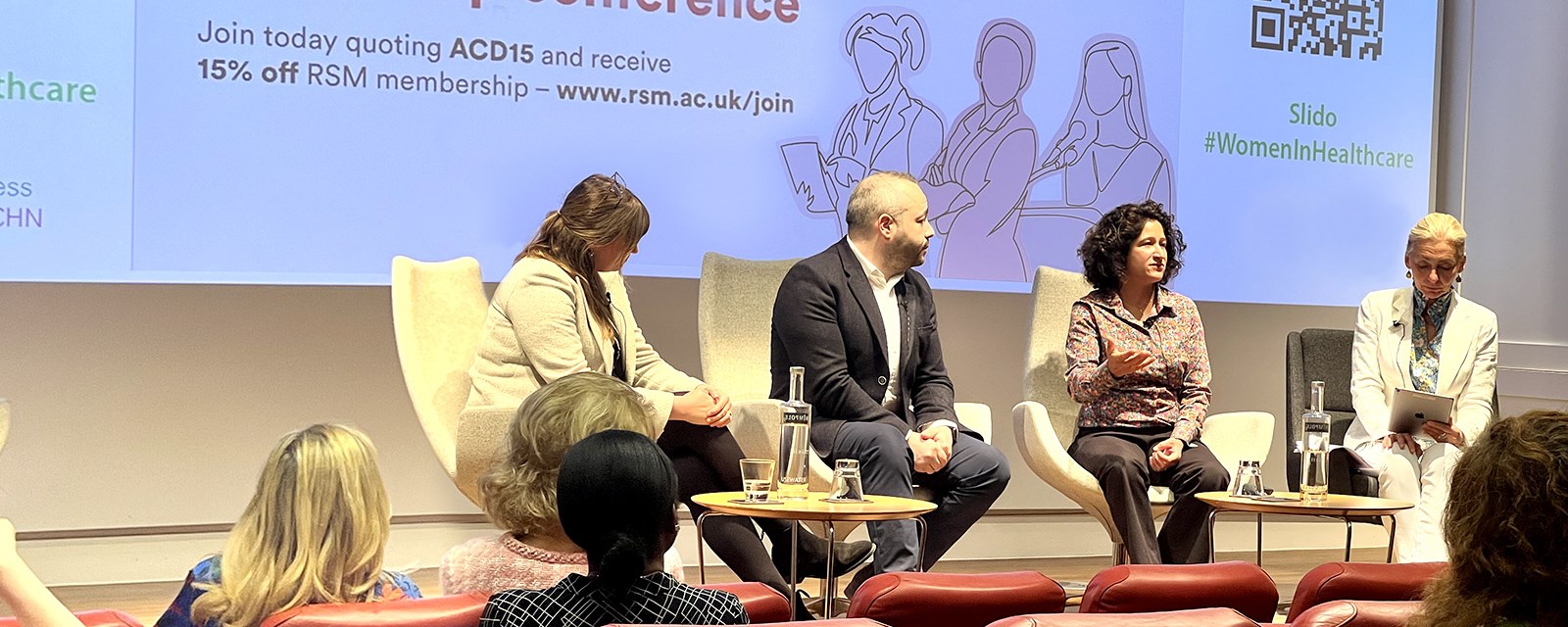
Advancing women in healthcare leadership
What is expected of women leaders and the importance of being good followers. The need to keep learning on the path to becoming a good leader. The importance of listening to others’ perspectives with respect and dignity – and learning from others’ shared experiences. Tackling sexual harassment and bullying within the NHS. Women-to-women misogyny and why men must not be excluded from discussions about sexism. And the importance of creating support groups from among all those around us.
These were the themes which emerged from the Royal Society of Medicine conference ‘Advancing women in healthcare leadership’, supported by Lady Estelle Wolfson, which took place the day before the publication of an independent review of NHS and social care leadership in England, led by General Sir Gordon Messenger and Dame Linda Pollard.
The conference provided the platform for diverse views, stimulating ideas and vigorous debate throughout the day. Challenging conventional wisdoms about the qualities of a good leader was the subject of the first key speech, given by Professor Scarlett McNally, Consultant Orthopaedic Surgeon, Deputy Director of the Centre for Perioperative Care and President-elect of the Medical Women’s Federation. In her talk ‘Using heretical leadership to fix the NHS’, Professor McNally discussed the importance of learning management skills – “it’s not all about your vision” – and how decisions are made because of stories, crises and numbers, rather than on the basis of facts.
She went on to talk about how being perfect doesn’t allow a leader to thrive, why leaders should welcome challenge and the importance of having clear rules for decision-making.
Following a first-hand account of sexual harassment and workplace trauma from Miss Philippa Jackson, Consultant Plastic Surgeon, North Bristol NHS Trust, a panel discussion on managing circumstances and cultural change was led by RSM Council Trustee Professor Henrietta Bowden-Jones, with contributions from Miss Rebecca Fisher, IST trainee, General Surgery, Mr Simon Fleming, Trauma and Orthopaedic trainee, and Ms Homa Arshad, Clinical Lead, Trauma and Orthopaedics at the Royal London Hospital.
Round table discussions in the afternoon were led by influential women healthcare leaders including Dr Ebere Okereke, Dame Carol Black and Baroness Sheila Hollins.
In the last session of the day, Victoria Macdonald, Health and Social Care Editor at Channel 4 News, talked to Professor Neena Modi, Physician and Professor of Neonatal Medicine at Imperial College London, and Past-President of both the UK Medical Women’s Federation and the Royal College of Paediatrics and Child Health.
Together they explored Professor Modi’s conviction that the issues of misogyny, bullying and impostor syndrome experienced by women in healthcare are societal issues that need societal solutions, and how current government policies, not just in the UK but around the world, don’t value health. “The final arbiter of most policy decisions is usually the economy,” she said. “I hope that in this country we can advocate for our policies to be built upon a primary focus on health, not a primary focus on an old-fashioned, outdated metric of GDP (gross domestic product).”
Speaking after the event, Dr Habib Naqvi, Director of the NHS Race and Health Observatory, who spoke earlier in the day on the benefits of a representative workforce, said: “I was eager to come to the Royal Society of Medicine to talk about this very critical agenda, because this is about allyship, it’s about making sure that it’s not a burden for those that are most affected by it. Everyone has a role to play in closing the gap between the ambitions that we have around the ideals of our values, and the reality of our time. The disproportionate impact, the disparities we see within the workplace for our women and people from ethnic minority backgrounds, and that intersectionality, is really important to focus on."
